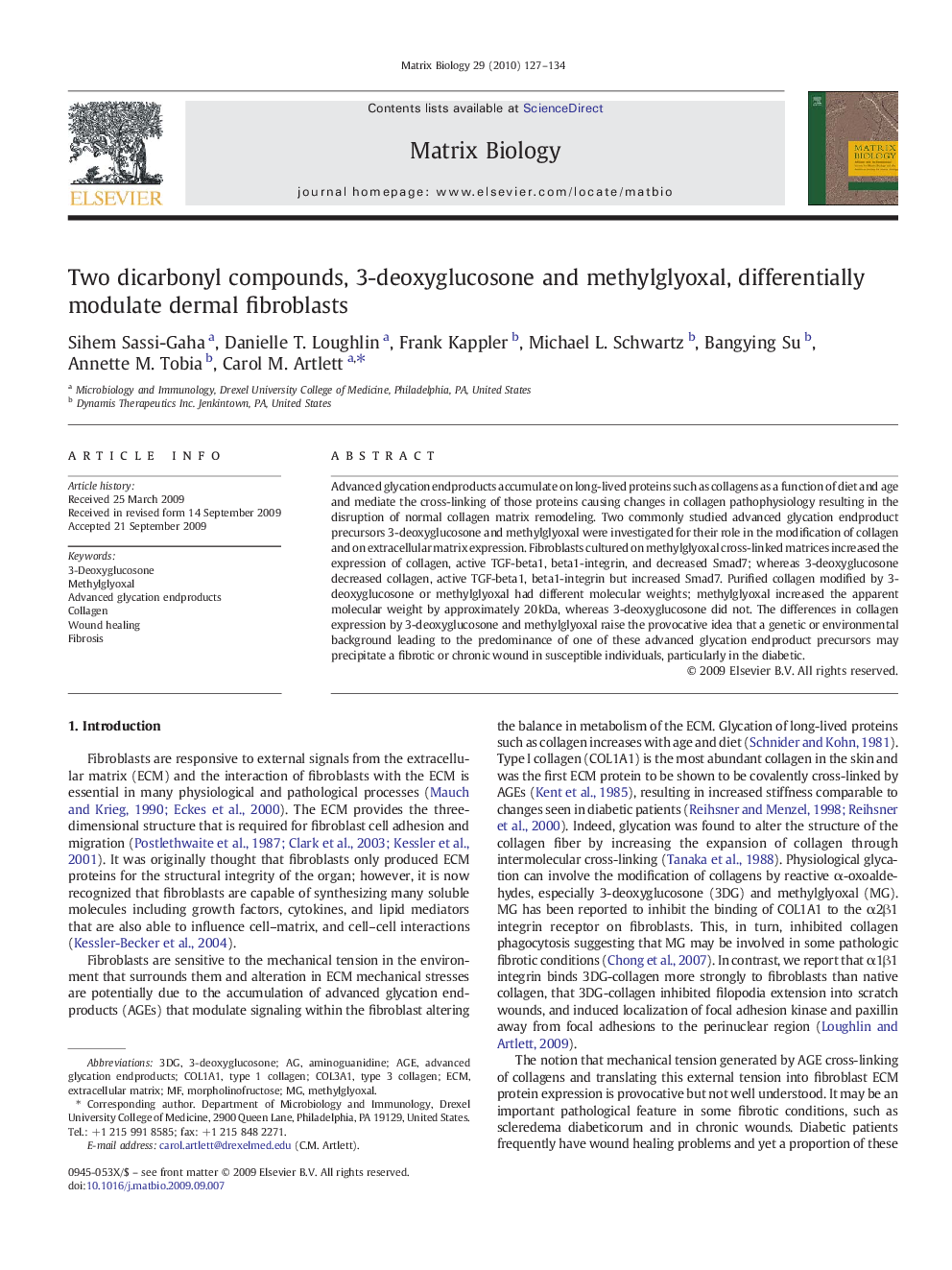| Article ID | Journal | Published Year | Pages | File Type |
|---|---|---|---|---|
| 2145013 | Matrix Biology | 2010 | 8 Pages |
Advanced glycation endproducts accumulate on long-lived proteins such as collagens as a function of diet and age and mediate the cross-linking of those proteins causing changes in collagen pathophysiology resulting in the disruption of normal collagen matrix remodeling. Two commonly studied advanced glycation endproduct precursors 3-deoxyglucosone and methylglyoxal were investigated for their role in the modification of collagen and on extracellular matrix expression. Fibroblasts cultured on methylglyoxal cross-linked matrices increased the expression of collagen, active TGF-beta1, beta1-integrin, and decreased Smad7; whereas 3-deoxyglucosone decreased collagen, active TGF-beta1, beta1-integrin but increased Smad7. Purified collagen modified by 3-deoxyglucosone or methylglyoxal had different molecular weights; methylglyoxal increased the apparent molecular weight by approximately 20 kDa, whereas 3-deoxyglucosone did not. The differences in collagen expression by 3-deoxyglucosone and methylglyoxal raise the provocative idea that a genetic or environmental background leading to the predominance of one of these advanced glycation endproduct precursors may precipitate a fibrotic or chronic wound in susceptible individuals, particularly in the diabetic.
